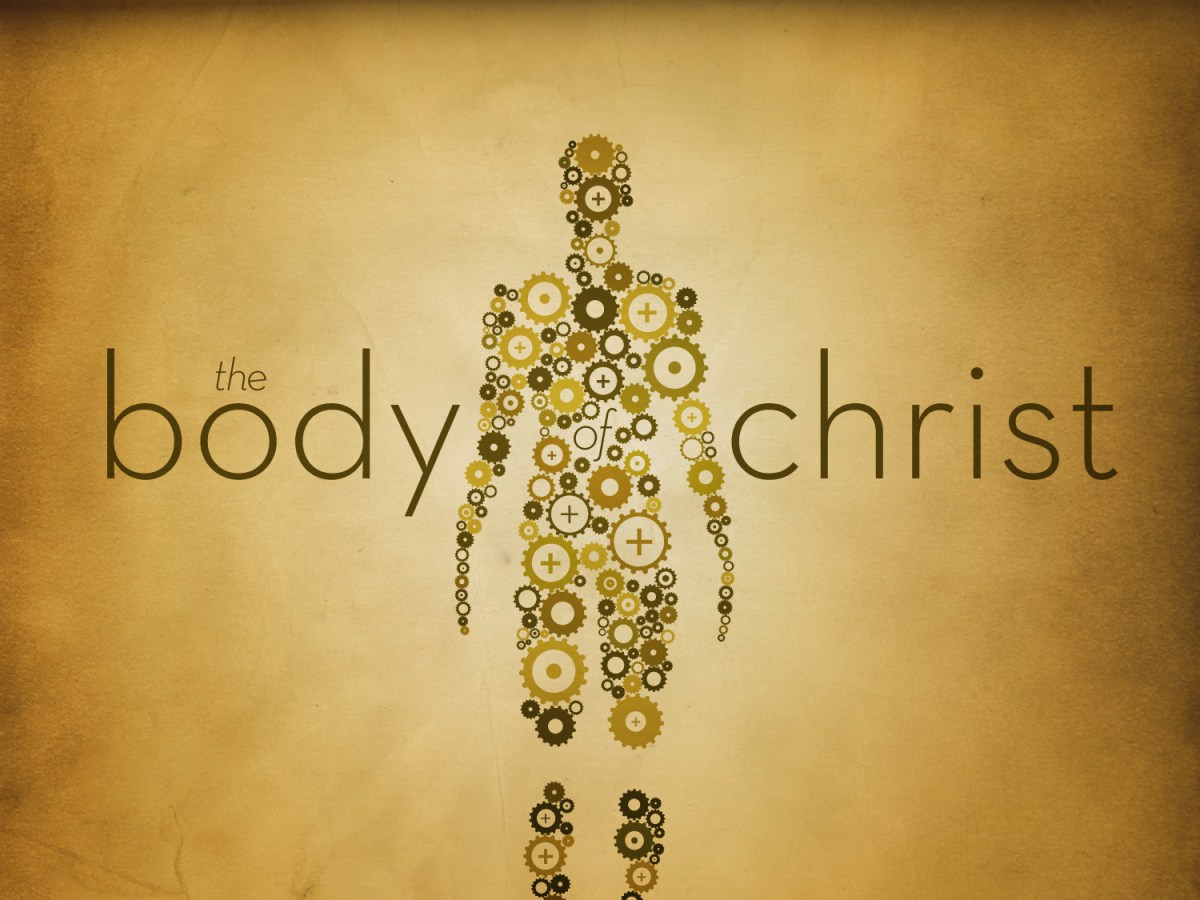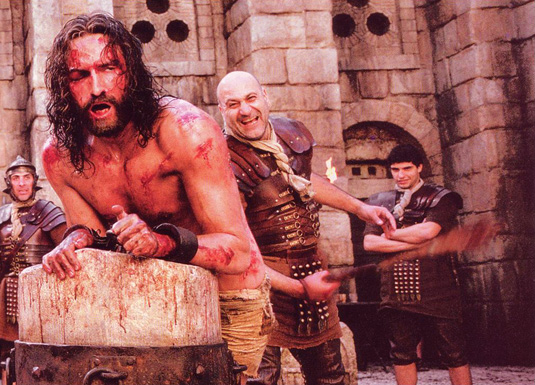When Jesus set out to make disciples, he gathered committed people around him and did life with them. Yes, he taught the multitudes, but it doesn’t seem that those people became champions of the kingdom after his death. Perhaps many of them were actually among the throngs demanding that Pilate crucify him. His teaching seems to have been an invitation to join the small group of committed people who shared life with him.
After his death and resurrection, he left his disciples with each other and the Holy Spirit.
He didn’t leave them a book or even a DVD series on how to live in the kingdom. They had no building, no programs, and no parachurch ministries – for crying out loud, they didn’t even have a place to drop their kids!
Those things belong to institutions, but Christ had made them his body. Bodies grow as life flows through to all of their members. Bodies perform work as each member receives direction from the head.
All of these functions are natural. They just happen in healthy bodies.
In Ephesians 4:1-16, Paul describes the healthy function of Christ’s body.
The Healthy Body of Christ Sticks Together
I know a guy who cut off the end of his middle finger with a circular saw. He took it to the emergency room, but they didn’t have a vascular surgeon on staff and the only one in the area wouldn’t be back in town for two days. So, they literally taped it back on! I’ve gotta tell you, I didn’t have much hope that he’d be able to keep the finger when I saw it. Two days later, the blackish purple appendage got reattached. It took, and he still has the finger. Unfortunately, he can’t bend it, so he inadvertently offends people once in a while.
Apart from the body, my friend’s finger was dying. His body also suffered the loss of that finger’s full function. That’s what happens when just one member of Christ’s body becomes separated from the rest. The body of Christ can suffer far greater damage when disgruntled factions defect at once. Can you imagine the trauma to a physical body if one third of its mass was suddenly cut away?
We didn’t make our bodies, but we know we need to keep them in tact.
According to the apostle Paul, it’s the same way with the body of Christ.
As a prisoner for the Lord, then, I urge you to live a life worthy of the calling you have received. Be completely humble and gentle; be patient, bearing with one another in love. Make every effort to keep the unity of the Spirit through the bond of peace. There is one body and one Spirit, just as you were called to one hope when you were called; one Lord, one faith, one baptism; one God and Father of all, who is over all and through all and in all. (Ephesians 4:1-6)
We don’t create the body of Christ. We don’t even join the body. We’re members of the body because we share one Spirit. The Spirit unifies all those whom he indwells into one. From the moment we’re born again, we become united to every other regenerated person. We are one body because we’ve received life from Christ.
We can’t produce the unity of the Spirit, but we can undermine it. In the same way that abuse or neglect of the physical body will jeopardize it’s health, so we need to “Make every effort to keep (or maintain) the unity of the Spirit.” We keep what we’ve been given by considering one another and tolerating each other. Who wouldn’t want to be in a community where everyone worked to be pleasant company and to keep loving each other even when they weren’t so pleasant? In this way, we will begin to fulfill our calling.
What calling is that, you ask?
This mystery is that through the gospel the Gentiles are heirs together with Israel, members together of one body, and sharers together in the promise in Christ Jesus.
His intent was that now, through the church, the manifold wisdom of God should be made known to the rulers and authorities in the heavenly realms, according to his eternal purpose that he accomplished in Christ Jesus our Lord. (Ephesians 3:6,10-11)
God means to hold up the church before all heavenly beings as an expression of his ability to bring all kinds of people together into one new humanity. It our job to get in step with this plan.
In an age of megachurch, it might seem strange to advocate for unity among believers. Someone might say, “Hey, we’ve got 20,000 people coming to this campus every Sunday. How much more unified can you get?”
A lot.
Here’s the problem. People go to megachurch to receive spiritual goods and services for themselves. If they don’t receive the type or quality of spiritual goods and services they’re looking for, they just go to another church that promises better products to meet their demands. Their relationship with the church isn’t with the other members but with the institution, and it’s a tenuous, codependent relationship.
It’s easy to go to a place where I can drop off my kids to be entertained, get a free cup of coffee, listen to a concert in a padded seat, and get an inspirational message all while being told that I’m following Jesus. And best of all, since it’s such a large group, I can sit or stand all alone in a crowd. (Unless that junior pastor makes everyone turn to shake hands.)
I’m not against worshiping through song, or hearing a message from the Bible. I’m just saying that those things can’t possibly be what Paul was talking about in Ephesians 4 because they don’t require us to “Make every effort.” If we’re going to put for effort into church, shouldn’t it be to build loyal, loving relationships with other believers who are different from us in every other way?
If the life of Christ within us isn’t enough to knit us together across every other cultural divide, then God has failed. He never fails, so we need to make every effort to cross the seat back partitions between us and share life. We need to eat together, travel together, work together, play together. That’s church. Nothing else will grow us into the likeness of Christ.





